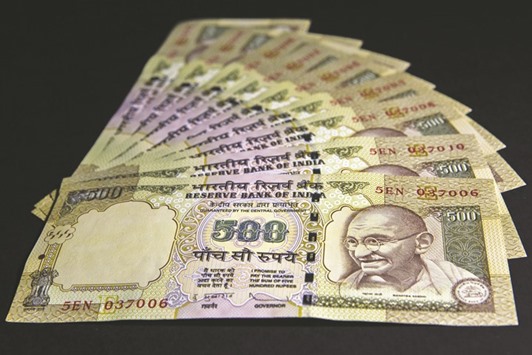Indian stocks rose, helping the benchmark index almost erase its weekly drop, as financial and real estate shares climbed and speculation grew that the UK won’t vote to leave the European Union.
The S&P BSE Sensex advanced 0.4% to 26,625.91 at the close in Mumbai, trimming its decline from June 10 to less than 0.1%. Local equities tracked gains in Asia as the killing of a UK lawmaker on Thursday fuelled speculation that Britons could be more inclined to vote to stay in the EU in the June 23 referendum. The India NSE Volatility Index, a measure of protection against stock-market swings, fell from a two-month high.
Anxiety stemming from a so-called Brexit curbed demand for riskier assets, wiping more than $2tn from the value of global stocks over the past week or so. Campaigning for the referendum was suspended for a second day on Friday after the murder of Labour Party lawmaker Jo Cox.
“The markets will track their global peers until the Brexit event gets out of the way,” said Chokkalingam G, managing director at Equinomics Research & Advisory in Mumbai. “We expect volatility to rise.”
The Sensex has surged 16% since hitting a 21-month low in February and is up 2% in 2016 as forecasts for the strongest monsoon in two decades and India’s world-beating economic growth lured $2.8bn in inflows from foreign funds this year.
Tata Motors, the owner of Jaguar Land Rover, rose 2.2% in a fourth day of gains. Bharti Airtel, India’s largest mobile-phone operator, rallied 3%, the most since June 1. Coal India, the world’s largest miner of the fuel, advanced 1.8%. Tata Consultancy Services, the nation’s largest software services exporter that gets a quarter of its revenue from Europe, added 1.7%, the most since June 1.
Investors are closely watching the progress of the June-September monsoon season, which accounts for more than 70% of the nation’s annual rainfall. The showers were 25% below normal as of Thursday, the weather department said. The government is counting on above-normal precipitation to control food prices, boost farm output and ease a water shortage caused by back-to-back droughts.
“You have to keep your fingers crossed because the stakes are too high this time when it comes to the monsoon,” Sachin Shah, a fund manager at Emkay Global Financial Services in Mumbai, said in an interview with Bloomberg TV India.
Housing Development Finance Corp climbed 2.2%, making it the second-best performer on the Sensex after Bharti. The country’s largest mortgage lender is in talks with the Max Group to merge their life insurance units, people with knowledge of the matter said. Max Financial Services Ltd surged 11%, the most since June 2009.
Shares of real-estate developers rallied before a meeting of the capital markets regulator. DLF, the biggest, jumped 2.7%, while Unitech soared 15%. Sobha rallied 4.4% to its highest level since Decembner 28. The S&P BSE India Realty Index surged 3.5% to its highest in more than 12 months. It was best performer Friday among sectoral indexes tracked by the BSE.
Meanwhile the rupee yesterday closed at a one-week high against the US dollar after the current account deficit (CAD) narrowed sharply due to lower trade deficit.
The currency closed at 67.09—a level last seen on June 10, up 0.28% from its previous close of 67.28. The local currency opened at 67.22 and touched a high of 67.04 a dollar—a level last seen on June 13.
India’s 10-year bond yield closed at 7.502%, compared with Thursday’s close of 7.507%.
India’s current account came closer to recording a surplus, with March-quarter CAD narrowing sharply to 0.1% of the gross domestic product (GDP) on account of lower trade deficit. Contracting imports also helped bring down CAD for 2015-16 to 1.1% of GDP from 1.8% in the previous fiscal.
So far this year, the rupee has weakened 1.36%, while foreign institutional investors have bought $2.84bn from the local equity market and sold $1.16bn in debt markets.
Asian currencies closed mixed. The South Korean won was down 0.14%, Singapore dollar 0.1%, Philippines peso 0.1%, China Offshore 0.09%.

The rupee closed up 0.28% to 67.09 yesterday.
